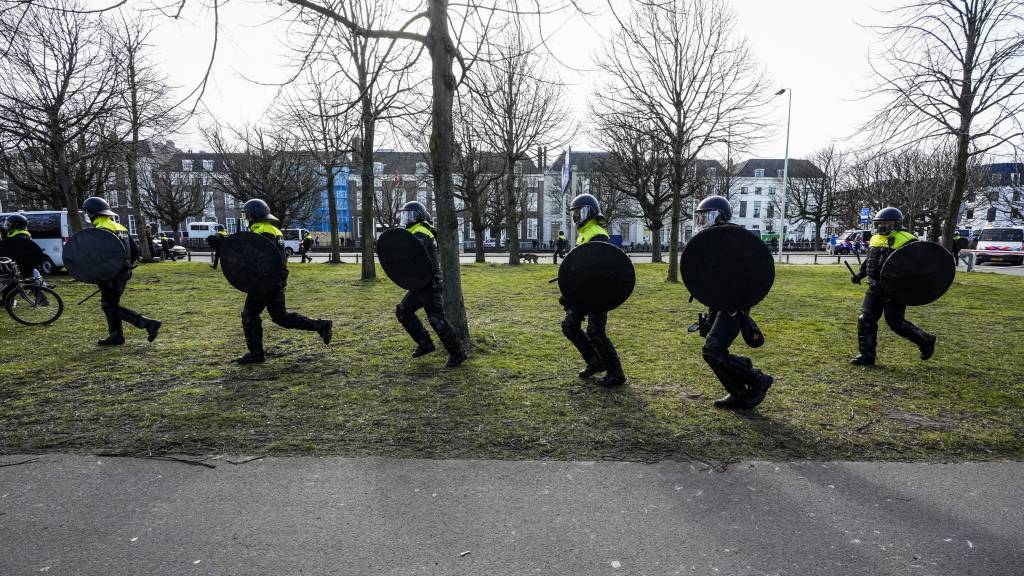
Een klacht is een geschenk. Dat zeggen veel management goeroes die veranderingen in organisaties begeleiden. Degene die de klacht over zich heen heeft geroepen voelt zich gekwetst. Door het geschenk wordt de angel eruit getrokken. Want wie wil er nu geen geschenk hebben? Daardoor kan rustig geëvalueerd worden wat er mis is gegaan. Of juist wat er goed is gegaan. Om van te leren. Zo zou de klacht van VN rapporteur Nils Meltzer (NRC 6/1/22) over excessief politiegeweld ook moeten uitwerken. Maar de angel is er helemaal niet uit en steekt behoorlijk, gezien de reactie van onder andere de politiebonden. En voelt zeker niet als een geschenk. Toch moet ‘For the sake of democracy’ juist de politie als ordebewaarder blijven openstaan voor kritiek. Hoe onterecht die ogenschijnlijk is.
A complaint is a gift. That is what many management gurus who guide change in organizations say. The person who raised the complaint feels hurt. The gift pulls the sting out. Because who wouldn’t want a gift? This allows you to calmly evaluate what went wrong. Or just what went well. To learn from. This is how the complaint of UN rapporteur Nils Meltzer (NRC 6/1/22) about excessive police brutality should also work out. But the sting is not out at all and stings quite a bit, given the reaction of, among others, the police unions. And certainly doesn’t feel like a gift. Nevertheless, ‘For the sake of democracy’, the police as keeper of the order must remain open to criticism. How wrong it seems.
De politie staat al langer onder druk vanwege het publieke geweld tegen de politie bij vele protestbijeenkomsten. Geweld opgeroepen door toenemende polarisatie in de wereld. Zie de bestorming van het Capitool in Washington exact een jaar geleden op 6/1/2021. Overgewaaid naar Nederland met als hoogtepunt de fakkeldrager voor het huis van Kaag en de moorddreiging op Rutte. Het optreden van overheid en politici is voor vele Nederlanders niet meer vanzelfsprekend acceptabel. Dus ook niet het optreden van de politie. In vele ogen is dit optreden niet rechtsstatelijk. Het geweld escaleert richting de politie. Dan is het niet zo gek, dat de politie soms letterlijk te hard terugslaat. Vastgelegd en ‘geframed’ op ronkende smartphones op dat moment.
The police have been under pressure for some time because of the public violence against the police at many protest rallies. Violence evoked by increasing polarization in the world. See the storming of the Capitol in Washington exactly one year ago on 6/1/2021. Blowed over to the Netherlands, culminating in the torchbearer in front of Kaag’s house and the threat of murder on Rutte. The actions of government and politicians are no longer naturally acceptable to many Dutch people. Not even the actions of the police. In many eyes, this action is not constitutional. The violence escalates towards the police. Then it is not surprising that the police sometimes literally hit back too hard. Captured and ‘framed’ on roaring smartphones at that time.
Maar de politie heeft – juist onder extreem moeilijke omstandigheden – wel het geweldsmonopolie. De kracht van de democratische rechtsorde is verantwoording afleggen over dat toegepaste geweld. Hoe mogelijk onterecht de kritiek van de VN rapporteur ook is, het is een geschenk die je moet koesteren. Omwille van de democratie.
But the police do have a monopoly on violence, especially under extremely difficult circumstances. The strength of the democratic legal order is accountability for that violence. However unjustified the UN Rapporteur’s criticism may be, it is a gift to be cherished. For the sake of democracy.
Ricky Turpijn



